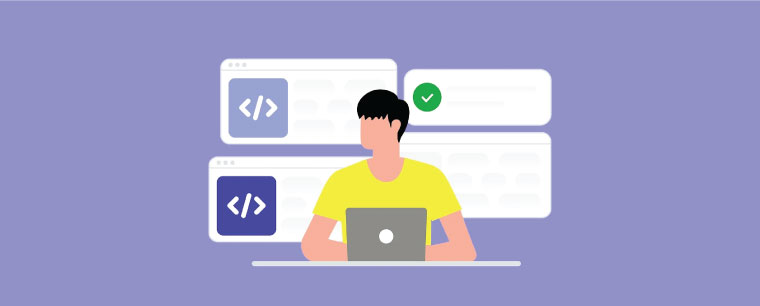Imagine waking up without the rush to beat traffic or catch a train, sipping your morning coffee as you settle into your home workspace, ready to tackle the day.
Sounds like a dream, doesn’t it?
Well, it’s not just a dream anymore. Remote work is rapidly becoming a preferred choice for people around the world, offering flexibility and opportunities that were unimaginable just a few years ago.
But let’s be real for a moment: Starting a remote job without any prior experience might feel overwhelming. You might be asking yourself,
“Where do I even begin?” or “Can I really stand out in a crowded remote job market?”
Trust me, I’ve been there, and I know the feeling.
The good news? It’s absolutely possible to land your first remote job with no experience if you have the right mindset, a clear plan, and the willingness to adapt.
In this guide, I’m going to share everything I’ve learned about starting a remote career from scratch. From identifying your strengths to navigating online platforms and building skills that employers value, I’ll walk you through it step by step.
Disclosure: This post contains affiliate links, so if you make a purchase, I’ll earn a commission at no extra cost to you.
What is Remote Work?

Remote work is a way of working that lets you step out of the traditional 9-to-5 office setup. Instead of commuting to an office, you can work from home, a cozy café, a co-working space, or even while traveling, as long as you have a stable internet connection.
When I first heard about remote work, I thought it was only for tech-savvy people or those with specialized skills. But that’s not true at all.
There are plenty of entry-level roles perfect for beginners, and here are some examples to get you started:
- Customer Service Representative: Respond to customer queries and solve problems using email, chat, or phone tools.
- Data Entry Specialist: Enter and manage information in databases or spreadsheets while maintaining accuracy.
- Virtual Assistant: Handle tasks like email management, scheduling, and general admin work to support busy professionals.
- Content Writer: Write articles, blog posts, or website content following simple guidelines and basic SEO principles.
- Social Media Coordinator: Help businesses stay active on social media by scheduling posts, managing engagement, and keeping track of trends.
- IT Support Specialist: Troubleshoot software, hardware, and network issues for clients or employees.
- Data Analyst: Work with data to create reports and identify patterns or trends using tools like Excel or Google Sheets.
- Web Developer: Design and maintain websites with coding languages like HTML, CSS, and JavaScript.
- Social Media Manager: Build content strategies, grow a company’s online presence, and analyze social media performance.
- Project Coordinator: Help teams stay organized by managing schedules, tasks, and project timelines.
These roles are great starting points, especially if you’re new to remote work. While some may require a degree or specific certifications, many companies are happy to train motivated candidates who show enthusiasm, adaptability, and good communication skills.

Email Marketing for Small Business
Learn how to build your email list, create engaging campaigns, and boost your sales.
Not Sure Where to Start?

When I started exploring remote work opportunities, I realized I needed to sharpen my skills to stand out. If you feel like you’re not ready yet, online platforms like Skillshare, Coursera, or LinkedIn Learning can be lifesavers.
They offer beginner-friendly courses taught by professionals, covering everything from graphic design to project management.
For example, if you’re curious about graphic design, platforms like Skillshare offer classes in Adobe Photoshop, Illustrator, and Canva.
These courses guide you through practical projects, like designing social media graphics or logos, which can help you build a portfolio.
A portfolio, even for entry-level roles, is your golden ticket. It shows potential employers that you’ve taken the initiative to learn and apply your skills.
Starting from scratch can feel intimidating, but the key is to focus on the basics. Before applying for remote jobs, build foundational skills that employers value, like time management, communication, and basic tech literacy.
Don’t worry if you’re starting with no experience. The remote job market is diverse, and with the right approach, there’s a place for everyone.
Must-Have Skills to Succeed in Remote Jobs
Having the right skills for your job is crucial, but when it comes to remote work, there’s more to it than just technical know-how.
Companies want to see how well they can manage working independently and collaborating in a virtual environment.
Think of these as your must-have skills, the foundation for thriving in any remote role, especially as a beginner.
1. Time Management

Remote work requires a lot of self-discipline. Without the structure of a traditional office, it’s up to you to create a routine that keeps you productive throughout the day.
Here’s what has helped me stay on track:
- Stick to a regular work schedule – Working at the same time every day helps establish a routine and keeps work from bleeding into personal life.
- Track your time – I use apps like RescueTime or Toggl to see how I spend my day and find areas for improvement.
- Make a daily to-do list – Each morning, I jot down tasks (or use an app like Todoist) to stay organized and focused.
- Take regular breaks – I work for about 50 minutes, then take a 15-minute break to recharge, but I always keep my company’s expectations in mind.
If you’re looking to streamline things further, tools like Notion.
Can help you keep all your tasks, documents, and notes in one place. It’s a great way to reduce confusion and save time switching between different apps.
2. Communication Skills

In remote work, communication is your secret weapon. Since you can’t just walk over to a coworker’s desk, everything relies on clear and effective virtual communication.
Here’s what that looks like:
- Writing emails that are simple to understand.
- Responding to messages promptly.
- If you’re unsure about something, don’t hesitate.
- Keep your team updated on what you’re working on.
- Choosing the best way to reach out, whether it’s email, chat, or a quick video call.
- Being mindful of time zones and respecting different communication styles.
Strong communication can make all the difference in how smoothly you collaborate with your team.
3. Tech Savviness

You don’t need to be a tech expert to work remotely, but being comfortable with digital tools is a must. It’s all about being able to quickly learn new software, handle basic tech issues on your own, and stay updated on digital trends.
Here are some key tools you’ll need to get familiar with:
- Online Meeting Tools (Zoom, Google Meet) – For video calls with your team or clients.
- Chat Tools (Slack, Microsoft Teams) – For quick messages and team updates.
- Basic Office Tools (Google Docs, Microsoft Office) – For creating documents and handling spreadsheets.
- File Sharing Tools (Google Drive, Dropbox) – To store and share your files securely.
- Workspace Tools (Trello, Asana) – To organize tasks, projects, and team collaboration in one place.
Many companies offer training on their own tools, but knowing these basics gives you a solid start.
Where to Find Remote Jobs with No Experience
Finding a remote job is a lot like searching for a traditional job. You still need to follow the job search process, meet skill requirements, and maintain professional standards.
However, remote work comes with its own set of differences, from how you communicate with your team to how managers lead remotely.
It might seem challenging at first, but trust me, there are plenty of places to look for opportunities:
1. Social Media Platforms

Don’t forget to check out these social media platforms for remote job opportunities:
- LinkedIn – Follow companies and search for hashtags like #remotework
- X – Follow remote job accounts and company pages
- Facebook Groups – Join groups dedicated to remote work opportunities
2. Company Career Pages

Many companies hire remote workers directly. Here’s what you can do:
- Look for “remote-first” or “distributed” companies
- Explore tech startups since they often embrace remote work
- Follow companies that align with your skills and interests
3. Freelance Platforms

Freelance platforms like Upwork and Fiverr are excellent places to start your remote job search.
Here’s why:
- You can take on small projects to gain experience.
- Many clients are open to hiring beginners for simple tasks.
- These platforms help you build a portfolio and gather client reviews.
- While the competition can be tough, there are always opportunities available.
4. Job Boards

Here are some great websites where you can find remote job opportunities:
- We Work Remotely
- Remote.co
- FlexJobs
- Indeed (just search for “remote” in the location field)
5. Networking

Building connections is key to finding remote job opportunities:
- Join online communities like Reddit’s r/remotework
- Attend virtual networking events
- Connect with professionals in your field
Landing your first remote job takes time and effort, just like learning any new skill. You may face setbacks, and that’s okay.
Keep checking job boards, focus on developing your skills, and engage with others in your industry. These steps will help improve your chances of success.
Overcoming Common Challenges
Remote work gives you flexibility, but it also comes with its own set of challenges. I’ve faced a few myself, and here are some things to keep in mind.
First, it’s easy to feel isolated. In 2022, a Statista report showed that about 21% of remote workers felt stuck at home, with no real reason to go out. I’ve been there, and it can be tough if you don’t have a clear boundary between work and personal life.

Another challenge many remote workers face is loneliness. Around 15% of remote workers reported it as their biggest struggle. It can be hard when you’re working alone, away from the usual office buzz.
But don’t worry, these challenges can be managed. Creating a dedicated workspace, scheduling regular breaks, and staying connected with colleagues can help you maintain a healthy work-life balance.
Time Management

Staying productive while working remotely can be tricky, but with a few strategies, it’s definitely manageable. Here’s what’s worked for me:
- Create a dedicated workspace: Set up a space that’s just for work, with good lighting and comfortable furniture. This helps you focus and feel more productive.
- Set clear boundaries: It’s important to separate work from personal life. I recommend establishing “office hours” to keep work time and relaxation time distinct.
- Try the Pomodoro technique: This method involves working for 25 minutes, then taking a 5-minute break. It keeps you refreshed and focused throughout the day.
- Stick to a regular schedule: Align your work hours with your team’s core hours to ensure you’re available when needed.
- Use time-blocking: This helps you set aside specific time slots for focused work and breaks, so you stay on track.
Building Confidence

Building confidence in remote work takes time, but here are some things that have helped me:
- Keep learning: I make sure to take online courses on platforms like Skillshare to stay updated with industry trends and improve my skills.
- Join communities: Being part of remote work groups has been great for me. I participate in discussions and learn from others’ experiences.
- Network with others: I love connecting with fellow remote workers through virtual coffee chats or finding a mentor. It’s a great way to get advice and share tips.
- Celebrate small wins: Every time I accomplish something, no matter how small, I take a moment to celebrate. It keeps me motivated to keep moving forward.
Communication
Effective communication is key in remote work, and here’s what I focus on:
- Be clear and concise: I make sure my written messages are simple and to the point, avoiding any confusion.
- Use asynchronous communication: Since not everyone works at the same time, I get comfortable using tools that let us communicate without needing to be online together.
- Document everything: I keep track of my work and decisions, so my team always knows where things stand.
- Regular check-ins: I set up regular meetings with my team and manager to stay aligned and address any issues early.
Technical Setup
A solid technical setup is essential for smooth remote work. Here’s what I make sure of:
- Reliable internet: I set up a strong internet connection, plus a backup in case things go wrong.
- Quality audio: I invest in good headphones and a clear microphone for crisp video calls.
- Comfortable workspace: I ensure my workspace is well-lit and comfortable, which helps me stay focused.
- Troubleshooting basics: I learn basic fixes for common technical issues so I can quickly resolve problems.
Starting remote work can feel challenging at first, but with time, it gets easier. As Thomas Edison wisely said, “Many of life’s failures are people who did not realize how close they were to success when they gave up.” So, stick with it – practice and dedication will help you succeed.
Final Thoughts – How to Start a Remote Job
Starting a remote job with no experience can feel intimidating, but trust me, it’s totally achievable. As we’ve covered the key skills you need, where to find jobs, and how to tackle common challenges, you’ll see that it’s just a matter of taking the right steps.
Remember, everyone starts from the beginning. Remote work is perfect for those who are eager to learn and grow.
To kick things off, here’s a simple action plan:
- Set up a dedicated workspace with reliable internet and the right equipment.
- Learn the essential tools like Zoom, Slack, and project management platforms.
- Work on improving your written communication.
- Invest in online courses and certifications to boost your skills.
- Create profiles on remote job boards to start applying.
- Join online communities to build your network.
- Use time management strategies to stay productive.
- Begin with freelance platforms to get hands-on experience.
Don’t wait for everything to be perfect. If you’re ready to work remotely, just take that first step now.
